- 1Share
- 1. Lemon Tea Cleanses And Heals.
- 2. Peppermint Tea Is A Natural Pain Reliever.
- 3. Lavender Tea, A Great Stress Buster.
- 4. Clove Tea Is A Classic Remedy.
- 5. Chamomile Tea Calms The Body & Mind.
- 6. Holy Basil Tea Is A Valued Ayurvedic Medicine.
- 7. Ginger Tea, An Ancient Headache Remedy
- 6. Holy Basil Tea Is A Valued Ayurvedic Medicine.
Tea for headaches is often a better option than pills. Made with Ayurvedic plants, herbal teas can provide quick relief, minus the side effects that pills can create. Moreover, tea gives us a chance to take a break from the day and simply sit back, sip, and relax. What’s the best tea for headaches? Decide for yourself from these 7 excellent options!
Herbal Tea For Headaches
1. Lemon Tea Cleanses And Heals.
Warm lemon tea helps the body cleanse itself by flushing out toxins. It stimulates the digestive system, supplies a good dose of Vitamin C, and has a refreshing effect on the mind. If you wake up with a headache or hangover, brew a tea with a few pieces of fresh lemon. Do note that lemon, being a citrus fruit, may trigger migraines in some people.
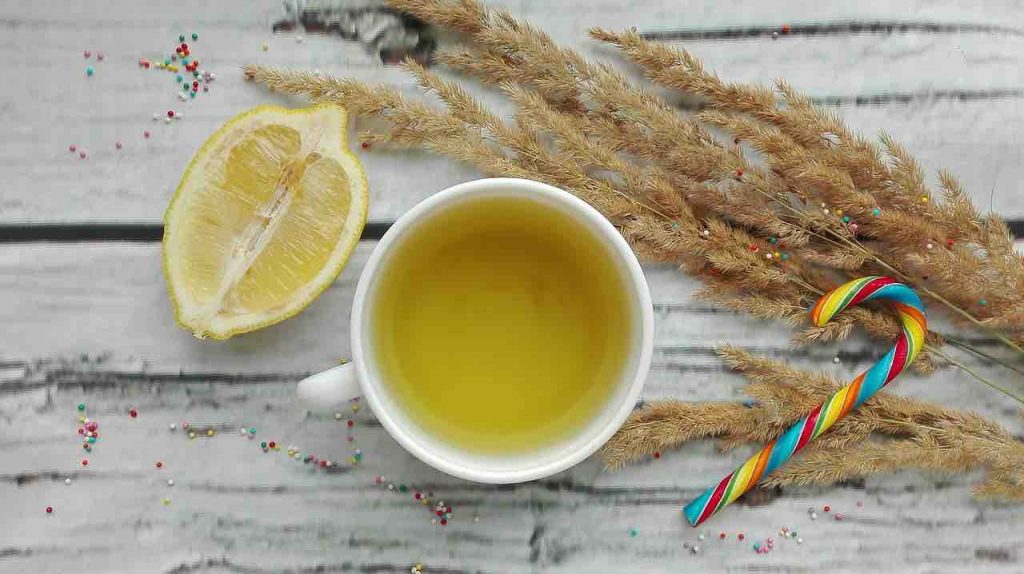
2. Peppermint Tea Is A Natural Pain Reliever.
No list of herbal tea for headaches is complete without peppermint tea. An effective relaxer of muscles as well as nerves, this delicious drink can help with many kinds of pain including headache, stomachache and menstrual cramps. Moreover, peppermint tea also soothes stress. With its cooling effects on the mind, it’s great for the summer.
3. Lavender Tea, A Great Stress Buster.
Looking for a tea good for headaches? Try lavender. For thousands of years, lavender has been prized for its calming and pain-relieving effects on the body. It’s a powerful remedy for anxiety, insomnia, irritation, and fatigue – which are often the causes of severe headaches. The scent of lavender itself has a soul-soothing effect.
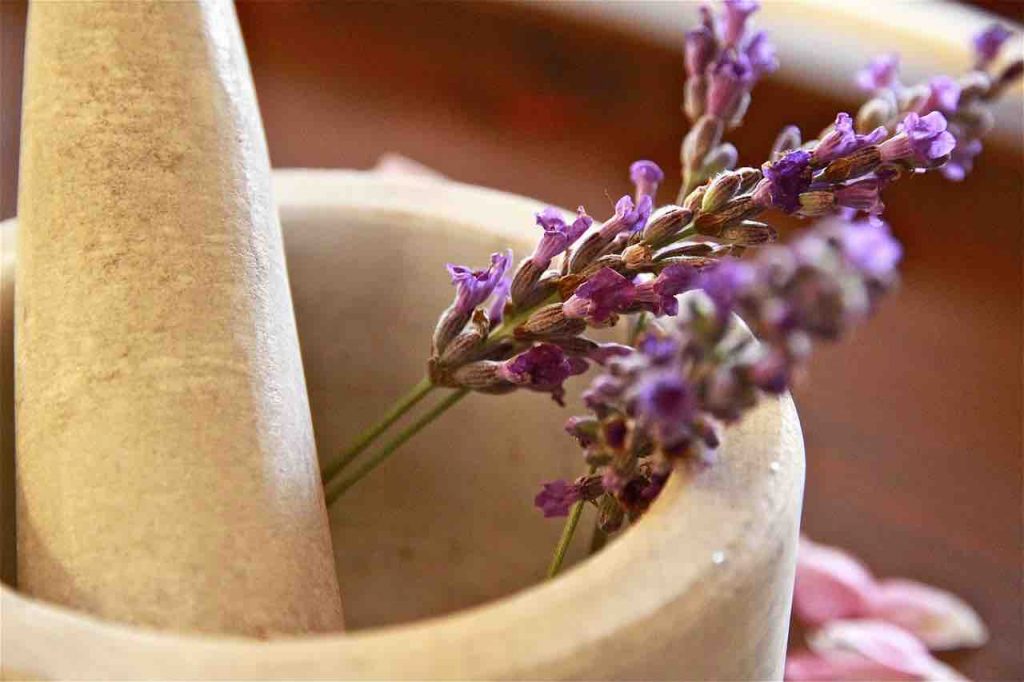
4. Clove Tea Is A Classic Remedy.
The best tea for headaches as a cough and cold symptom is clove tea. It relieves pain, helps the body expel phlegm, and also boosts immunity. It soothes the throat and reduces tooth ache. So if you’re down with a flu, sip on some warm clove tea and you’ll feel better in a matter of minutes.
5. Chamomile Tea Calms The Body & Mind.
Another great herbal tea for headaches is chamomile tea. Renowned across the world for its calming properties, chamomile tea is the best remedy for headaches resulting from anxiety and insomnia. It relaxes the entire body and reduces blood pressure. Moreover, it also helps you sleep better – which can otherwise be rather difficult with a throbbing headache.
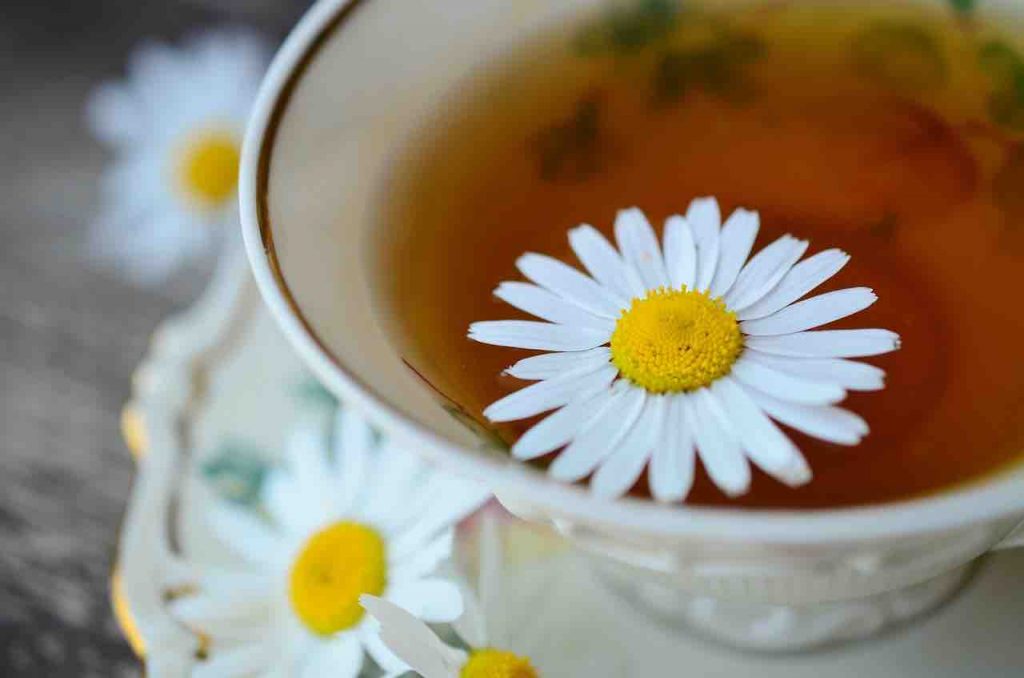
6. Holy Basil Tea Is A Valued Ayurvedic Medicine.
Maybe your best tea for headaches is holy basil tea. Known as tulsi in India, holy basil is one of Ayurveda’s most treasured medicinal herbs. Holy basil tea has antispasmodic, anti-inflammatory, and pain-relieving abilities…making it a must-try remedy for all kinds of headaches. The aroma is immensely soothing and uplifting for the soul.
7. Ginger Tea, An Ancient Headache Remedy
A commonly found tea that helps with headaches is ginger tea. Used in Ayurveda for thousands of years, ginger tea is very effective when it comes to healing migraines – although some experience increased pain with ginger, so be sure to try a little at first. Ginger tea is great for reducing nervousness-related headaches since it pacifies Vata. It warms the body, reduces blood pressure, and improves digestion.
6. Holy Basil Tea Is A Valued Ayurvedic Medicine.
Maybe your best tea for headaches is holy basil tea. Known as tulsi in India, holy basil is one of Ayurveda’s most treasured medicinal herbs. Holy basil tea has antispasmodic, anti-inflammatory, and pain-relieving abilities…making it a must-try remedy for all kinds of headaches. The aroma is immensely soothing and uplifting for the soul.
Note: Posts on Ayurvedum are solely for the purpose of sharing the goodness of Ayurveda and bringing awareness about natural and healthy living. Please do not substitute it for professional medical advice. Ingredients discussed can interfere with certain medications. So, before using anything to treat yourself, always consult an Ayurveda doctor or practitioner.

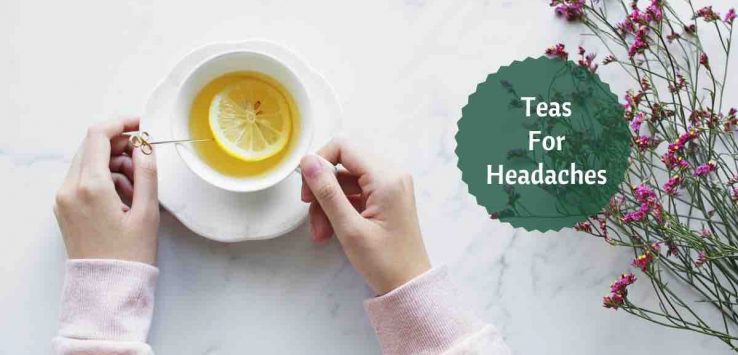
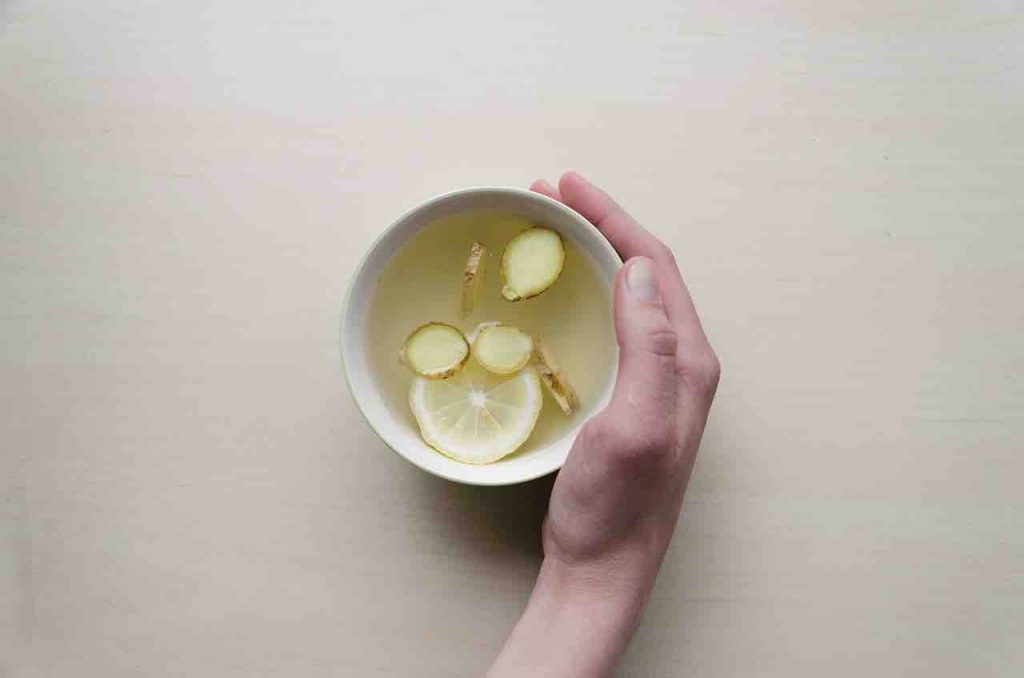




Leave a Reply